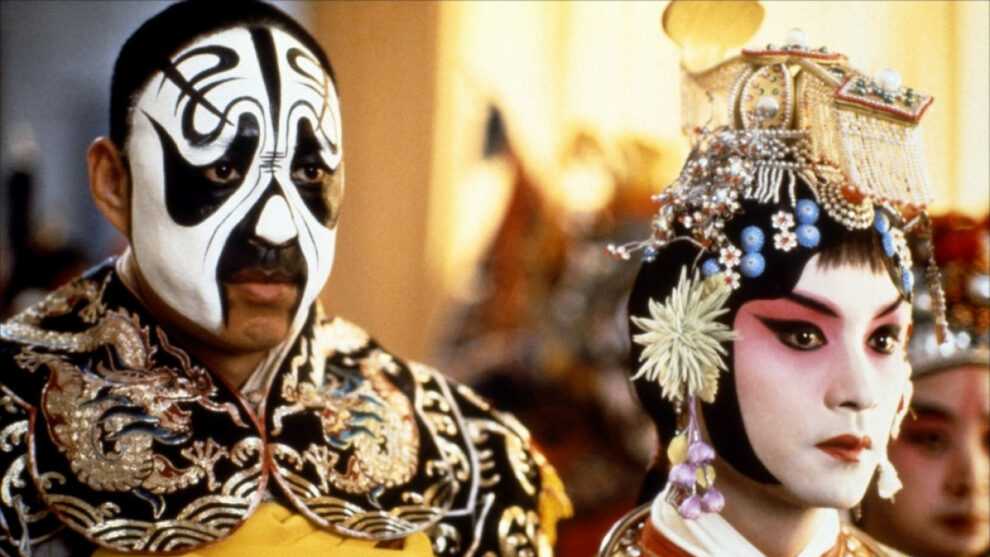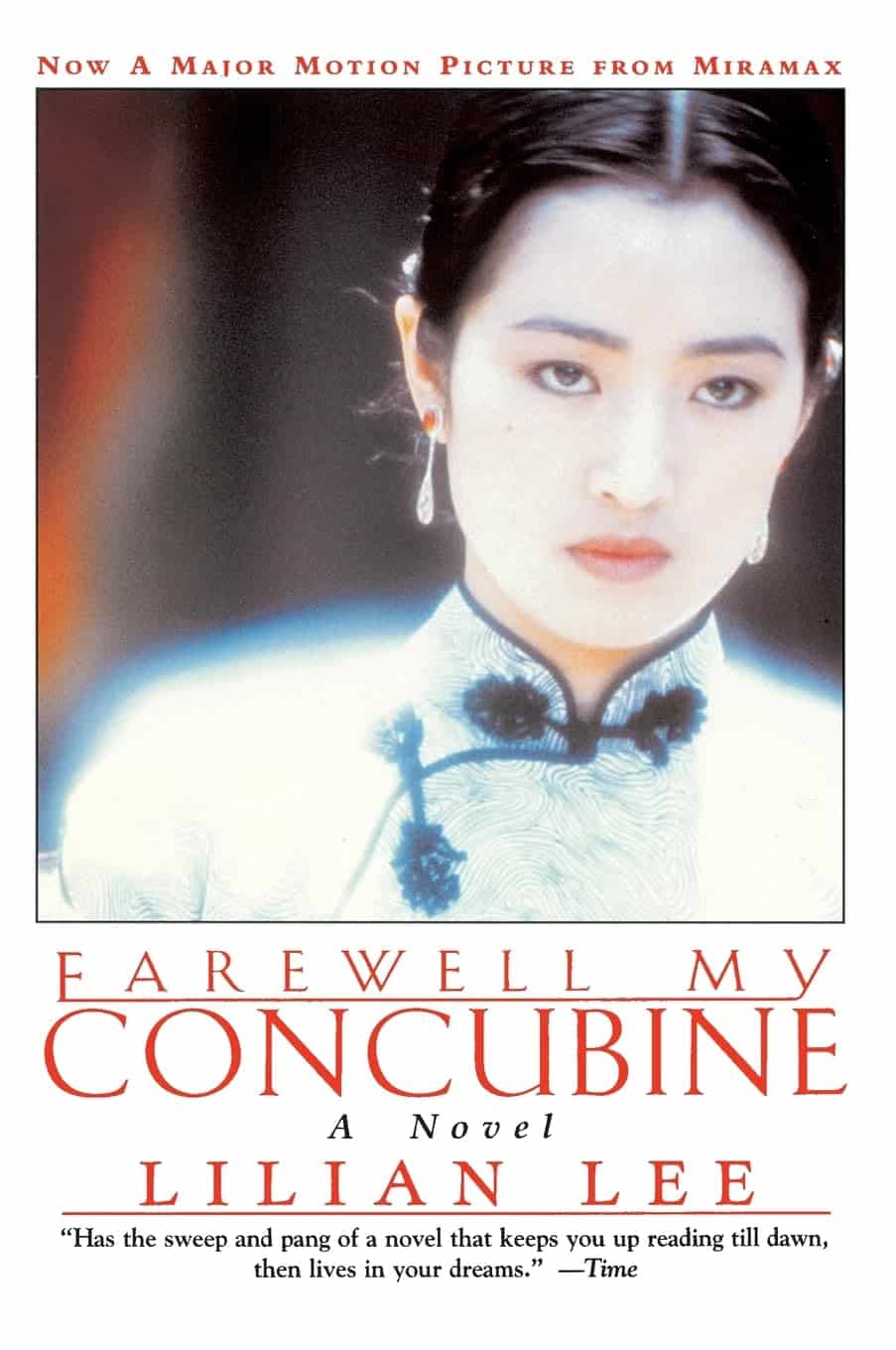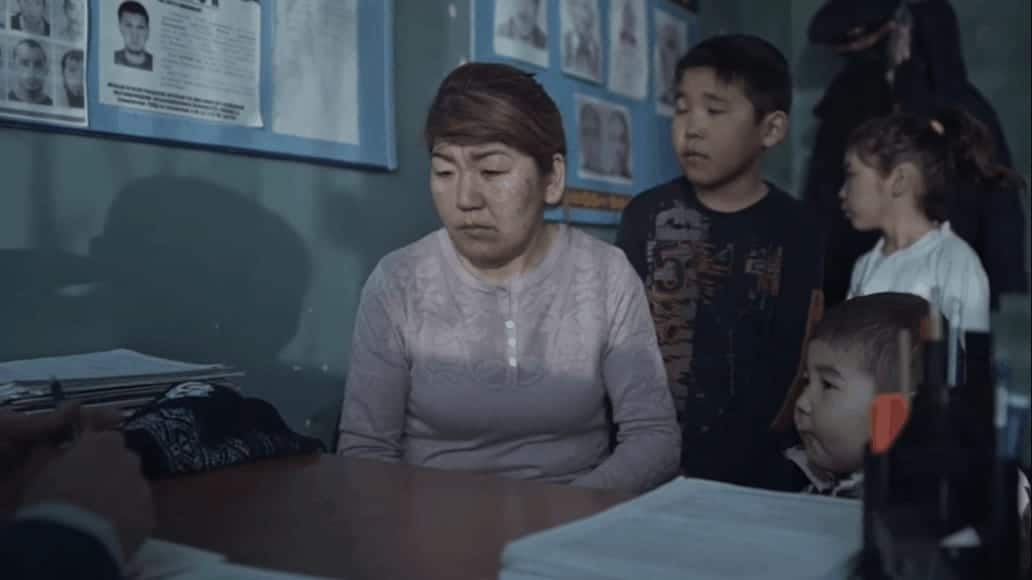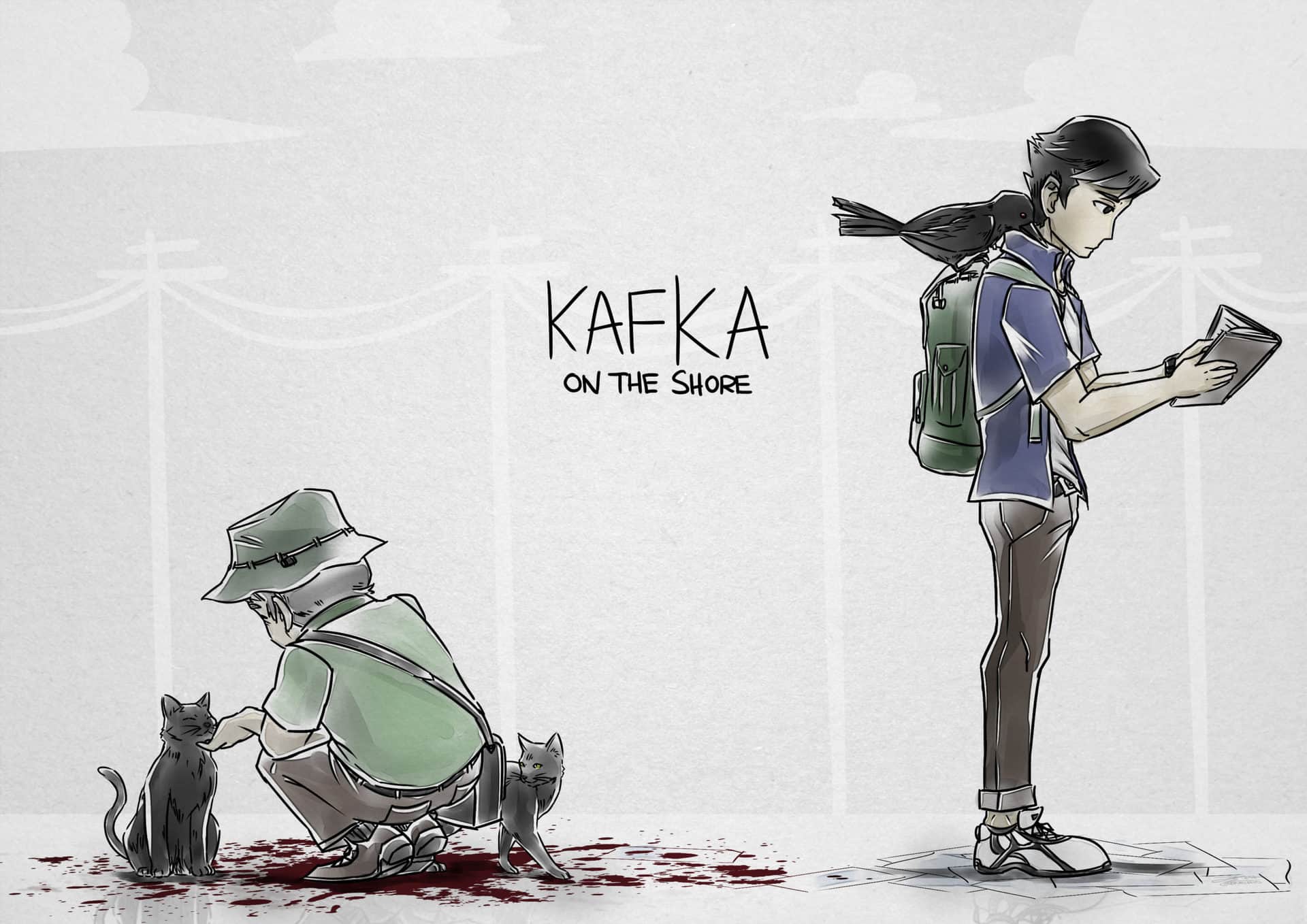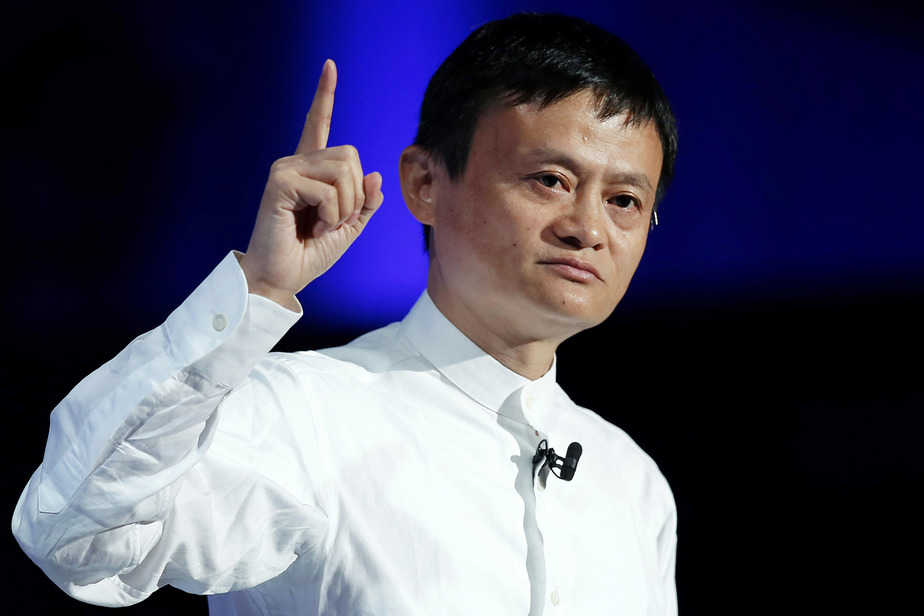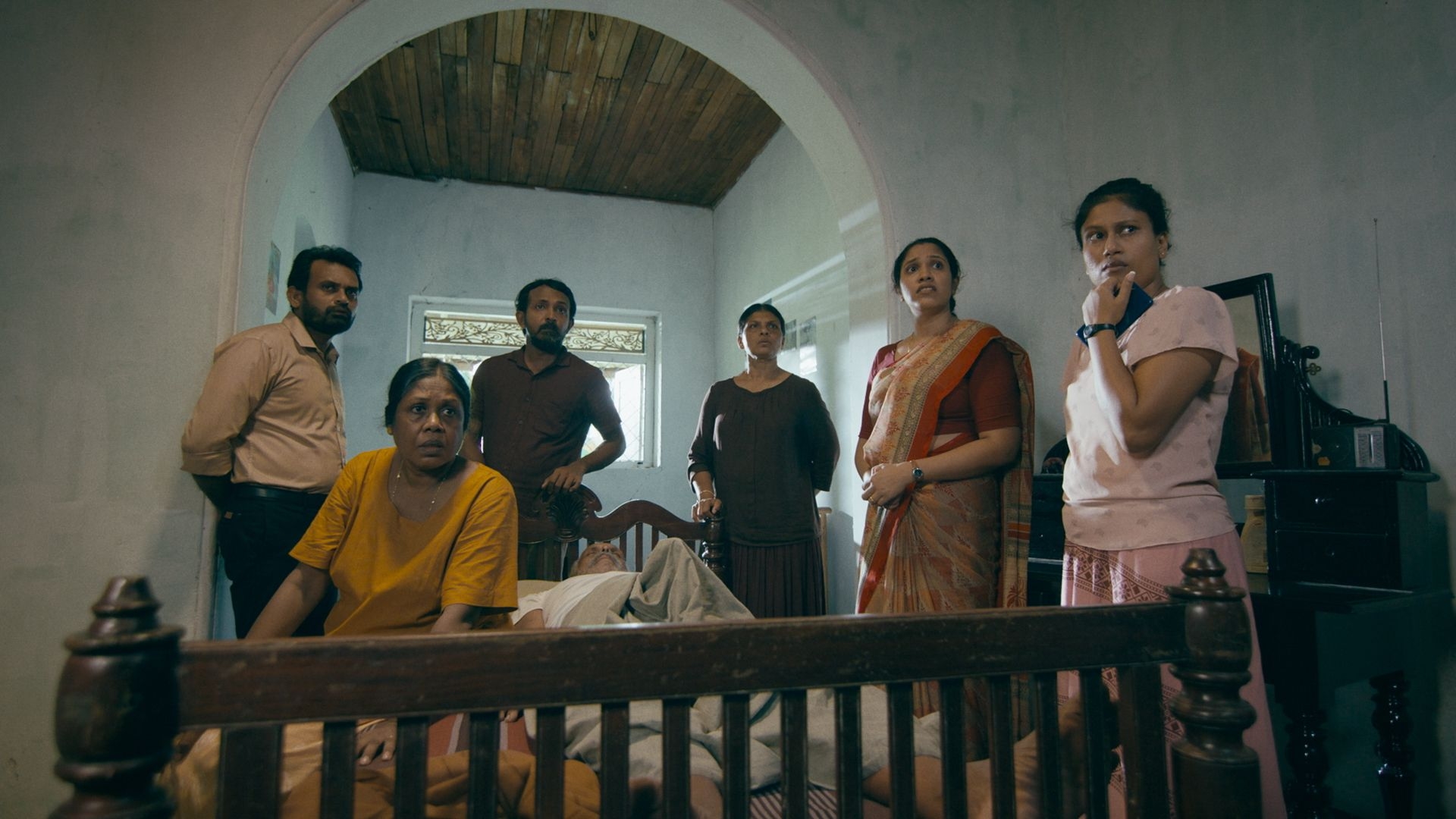Although the film is included in many lists as one of the all time classics of world cinema, following its Palme d'Or at the 1993 Cannes, the book the movie is based on remains largely unknown, which is a shame, considering the quality of the novel is by no means less that of the film. Furthermore, and as usual in the case of adaptations, the story and the context of the latter are much richer than of the movie.
After a prologue dealing with stage plays and prostitution both literally and as metaphors, the story moves to 1929, when Douzi, a boy with feminine features, is left by his prostitute mother to an all-boys Peking opera troupe supervised by Master Guan. Douzi is lost and shocked by the events but eventually befriends fellow trouper Shitou, who takes him under his wing. A decade later, in 1938, a teenage Douzi is trained to play dan (female roles), while Shitou learns jing (painted face male roles). Their lives are quite hard, with the exhausting training and the physical punishment for any mistake being essentially constant, but as the troupe starts to perform, things also begin to become better.
Years go by, and Douzi and Shitou become Peking opera stars under the stage names Cheng Dieyi and Duan Xiaolou, respectively. Their signature performance is the play “Farewell My Concubine”, where Dieyi plays the concubine Consort Yu and Xiaolou plays the hero Xiang Yu. The story continues to follow the two protagonists until the aftermath of the Cultural Revolution, eventually including Juxian, a prostitute who becomes involved with Xiaolou, as a central figure in the story.
Lillian Lee has written a genuine melodrama, focusing on two essentially orphans, whose happiness in life actually lasts very briefly, and even that, not without intense compromise. The rather harsh training that always entailed severe beatings and overall punishment by Master Guan, not to mention the inevitable cases of bullying, is only the beginning. Their success as opera singers brings them glory and money, but Dieyi still has to whore himself to men of power, while Xiaolou faces issues with gambling and his frequenting brothels. And while their success continues, Dieyi, who has been fostering an unrequited love for Xiaolou forever, has to deal with him bringing a girlfriend who soon becomes a wife in what the former considered an inner circle for two. That Juxian is a former prostitute does not help in that regard, neither that the cunning woman soon realizes Dieyi's feelings.
Check also this article
As the years pass, Dieyi falls into his own blight, that of opium addiction, while Xialou's temper brings him in trouble with the Japanese during the occupation, with him soon becoming poor again. The worst time for all the protagonists, however, comes with Mao and particularly the Cultural Revolution, with all of them suffering huge indignations and even intense violence, surprisingly, in the hands of kids. The melodrama here lasts until the end of the novel, which takes place in Hong Kong, and also provides a twist that actually changes the whole narrative, in one of the most impactful moments in the whole novel.
Through this melodramatic but also captivating story, Lee manages to make a number of social, philosophical, historical and political comments. The concept of acting and prostitution in particular, as much as their similarities, with actors getting paid to pretend they are someone else and prostitutes to enjoy having sex with their customers, echoes quite strongly throughout the book. Even more so since Lee has the two “prostitutes”, Dieyi and Juxian, fighting for the love of the same man, with the fact that the latter stops the endeavor while the former continues as long as it gives him power (occasionally just to save Xiaolou) being quite intriguing to follow. The concept of acting and where it stops is also presented, with the two male protagonists highlighting two opposite sides of it.
The political comments are also intricate, as they are interesting. Lee presents the issues every system presented, highlighting the fact though, that in the days of the Republic of China and even the Japanese Occupation, people could navigate these issues, particularly under certain circumstances, as the ones of the two male protagonists, but the same did not apply to the Mao era. The critique of this period is quite harsh actually, with Lee holding no punches in presenting its overall madness, and how a system that was supposed to give power to the people essentially ended up punishing them for the slightest of reasons. Notions that art was decadent and corrupt, or any connection to the (imperialistic) past, including simple memorabilia considered as proofs of people being counter-revolutionaries, showcase the absurdity of the regime in its initial years, in an approach that actually continues to the end of the book.
Lastly, the hardships the protagonists face mirror the ones China faced through the time the story unfolds. The Nationalist Revolution in 1911, the Japanese Occupation, the civil war, the Korean War, Mao's campaigns and particularly The Great Leap Forward and The Great Proletarian Cultural Revolution are all mirrored in the lives of the protagonists, in an aspect that induces the narrative with even more depth.
At the same time, that Lee manages to incorporate all the aforementioned in a style of story that can only be described as simple, in terms of vocabulary, syntax, even theme, considering that deep down this is a love story revolving around a triangle, emerges as a feat unto itself. As such, one can only describe “Farewell My Concubine” as a masterpiece also, just like the movie, and a great companion to it that definitely deserves a read, even after one has watched the film, or even particularly then.


